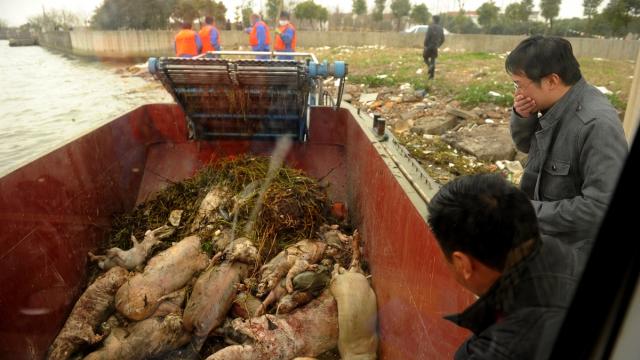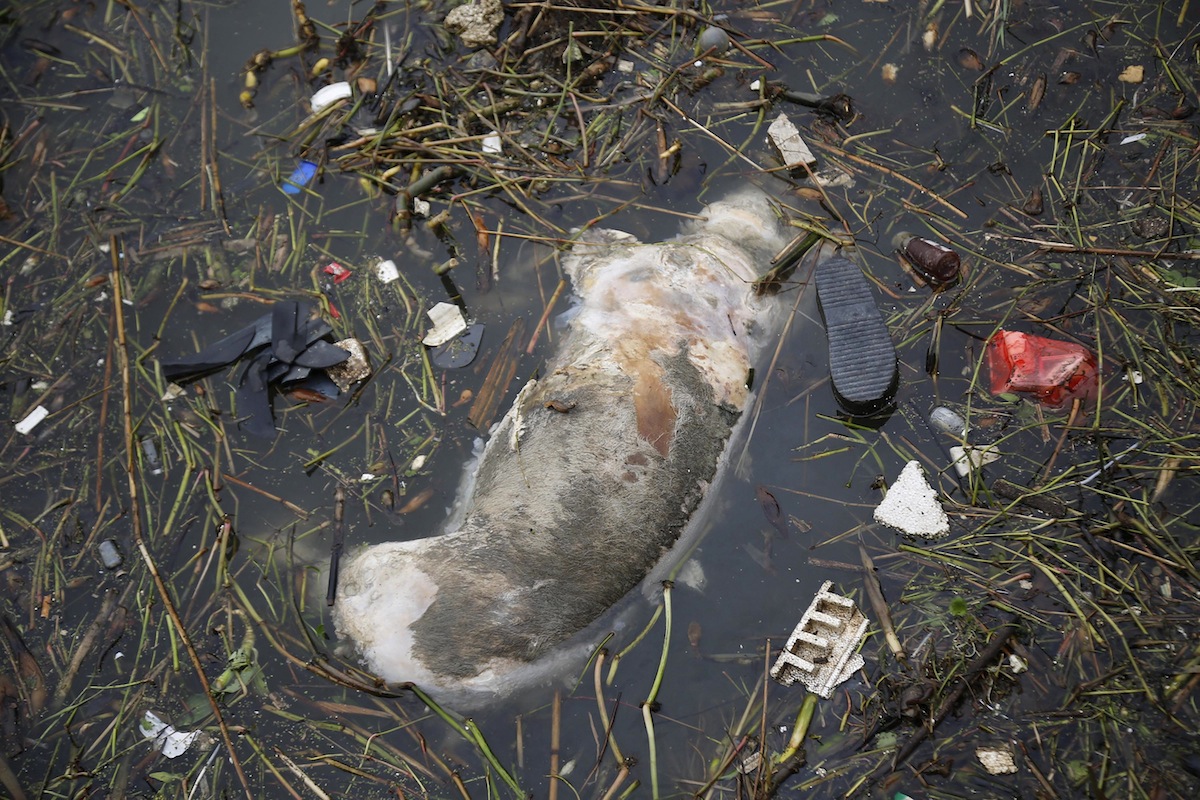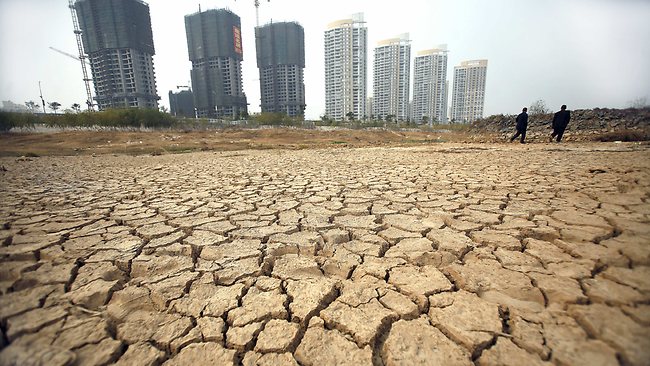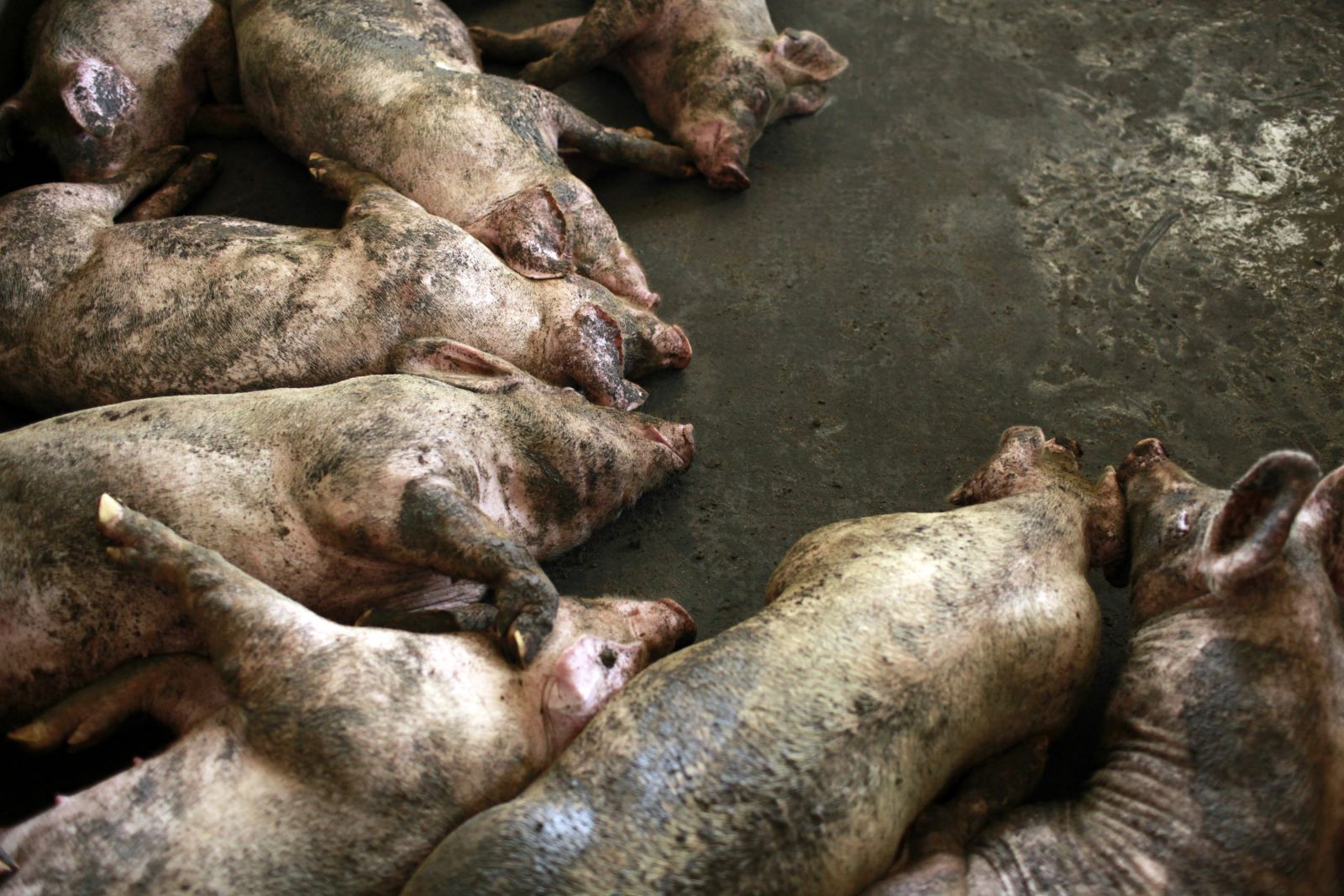
For years, China claimed to hold an estimated 50,000 rivers within its borders. Now, more than half of them have abruptly vanished.
Last week, China's Ministry of Water Resources announced the results of a three-year survey of the country’s waterways, revealing startling declines in water supply. According to the census, there were 22,909 rivers in China as of 2011, each covering an area of at least 100 square kilometers. That marks a decrease of about 28,000 from the government's previous estimates, raising fears among environmentalists and putting Beijing on the defensive.
China's longest rivers, the Yangtze and the Yellow, have each seen declining water levels in recent years, but the government's survey — its most comprehensive to date — may shed new light on the breadth and gravity of the country's crisis.
According to the South China Morning Post, officials attributed the decline to global warming and outdated mapping techniques, saying previous estimates were based on incomplete topographical maps from the 1950s. Experts, meanwhile, say there are more direct factors at play — namely, explosive economic development and poor environmental stewardship.
Ma Jun, director of the Beijing-based Institute of Public and Environmental Affairs, acknowledges that updated mapping techniques could explain some discrepancies in river estimates, though he notes that the government's findings corroborate those from independent studies.
"Our research has shown that in some areas, especially in north China, rivers are drying up or turning into seasonal rivers," Ma said in a phone interview with The Verge. There are several explanations for this phenomenon, including deforestation and, to a less certain extent, climate change, though Ma says the two primary catalysts are pollution and overpopulation.
Together, they form a potentially disastrous combination. China's mushrooming population has added extra strain to its limited water supply, while the country's rampant industrialization has left many rivers contaminated.
"At the moment, pollution discharge is destroying the limited clean resources we have," Ma said.
The extent of China's pollution problem was laid bare in grisly fashion last month, when more than 12,000 dumped pig carcasses washed ashore in Shanghai and Jiaxing. Agricultural and industrial waste has had a pronounced human impact, as well, contaminating water supplies in so-called "cancer villages" — a moniker for areas with particularly high cancer rates.
These incidents have drawn greater attention to China's water crisis, while reviving concerns over the environmental costs of unfettered economic development. Chinese lawmakers, however, have been grappling with these issues for decades.
China's modern water management system dates back to the 1960s, when a series of devastating floods forced Mao Zedong to commission an array of dams, reservoirs, and spillways. Mao's infrastructure helped prevent floods, but it also created ecological imbalances by blocking rivers that once flowed into the North China Plain. As a result, lakes and rivers in the region began drying up, and farmers began depleting well supplies.
Population growth has only compounded China’s supply issues. According to a 2006 study from the Organization for Economic Cooperation and Development (OECD), China's water use has increased more than fivefold since 1949, forcing the government to take even more drastic measures.
In 2008, China unveiled the Three Gorges Dam — a massive hydropower project that the country heralded as a marvel of engineering. Today, it's the largest hydropower structure in the world, though it has had disastrous ecological and social effects, resulting in deadly landslides and the displacement of an estimated 1.4 million people.
The government openly acknowledged these pitfalls in 2011, but it remains intent on building the South-North Water Transfer Project — an even grander undertaking that the New York Times described as "China's most ambitious attempt to subjugate nature." When completed, the $62 billion initiative will divert water from China's already drought-ravaged southern region to the northern Yellow and Hai rivers.
Ma describes the Water Transfer Project as "an emergency relief effort," citing the dire situation in China's northeast region, though he doesn't see it as a viable long-term solution.
"They could run out of water without this project," he said, "but even the current volume of redirected water likely won't be enough to keep up with demand."
Instead, Ma and others say China should focus on controlling demand and regulating pollution, rather than re-allocating its water supply.
Xavier Leflaive, head of the water team at the OECD's Environment Directorate, says China should implement market-based reforms to encourage more responsible water usage, while phasing out fertilizer subsidies to mitigate agricultural runoff.
He acknowledges that China isn't the only country facing these issues; global water demand is expected to increase 55 percent over the next three decades, and rapidly developing countries like India have faced similar crises. But Beijing's unique economic and social developments add an extra layer of urgency. "This global trend is exacerbated in China by the speed and scale of urbanization and economic development, and by a lack of strong monitoring, inspection and enforcement capabilities," Leflaive said in an email to The Verge. "This lack is limiting the effectiveness of otherwise sound policies, laws and regulations."
China has implemented tougher regulations on water usage and pollutants — the so-called "three red lines" — though it remains to be seen whether they can be enforced across an expansive, and fast-growing economy.
The good news is that the Chinese government seems willing to take a harder stance on environmental stewardship. In the past, Beijing has scoffed at calls to control its greenhouse emissions, arguing that it shouldn't be punished for its own economic prosperity. But Premier Li Keqiang has adopted a more environmentally conscious tone in recent weeks, vowing to be more transparent about his country's ecological issues.
"We must take the steps in advance," Li said last month, "rather than hurry to handle these issues when they have caused a disturbance in society."
The premier has also promised to enforce current regulations on pollution, as he explained at his debut press conference in March.
"This government will show even greater resolve and take more vigorous efforts to clean up such pollution," Li said. "We need to face the situation and punish offenders with no mercy and enforce the law with an iron fist."
3 WAYS TO SHOW YOUR SUPPORT
- Log in to post comments


















